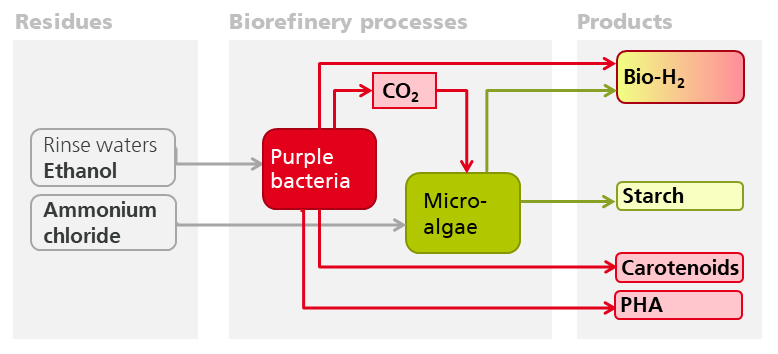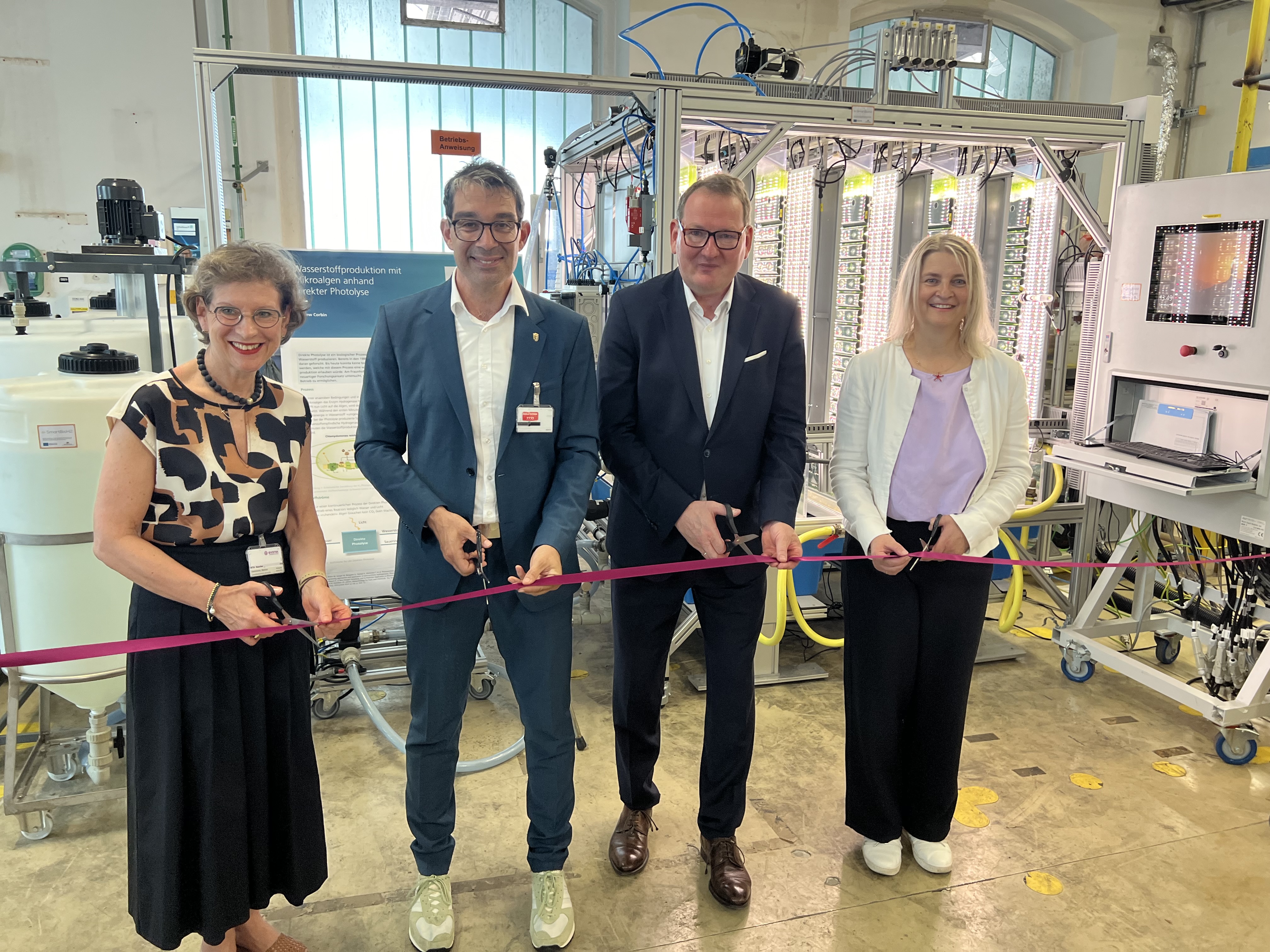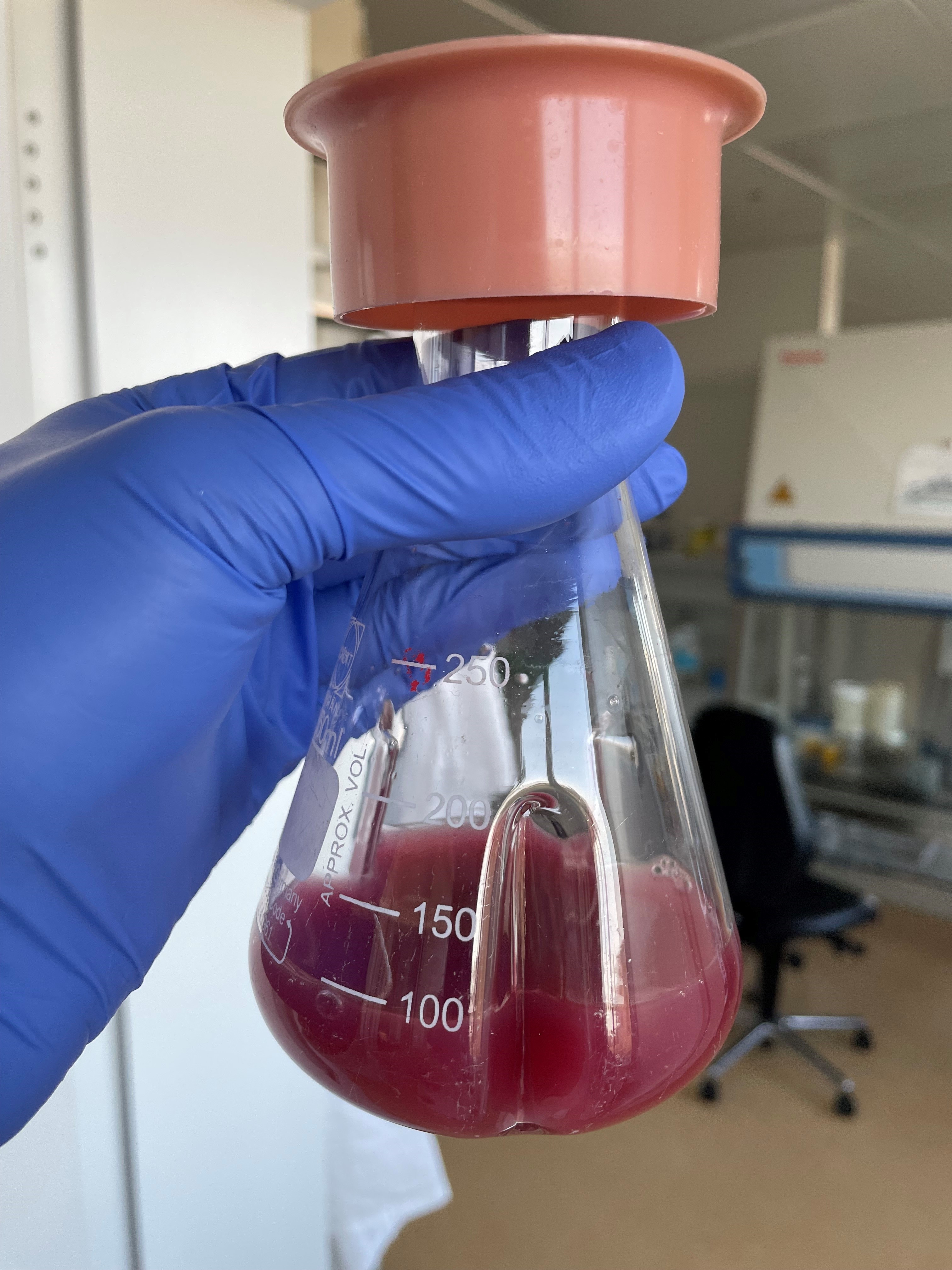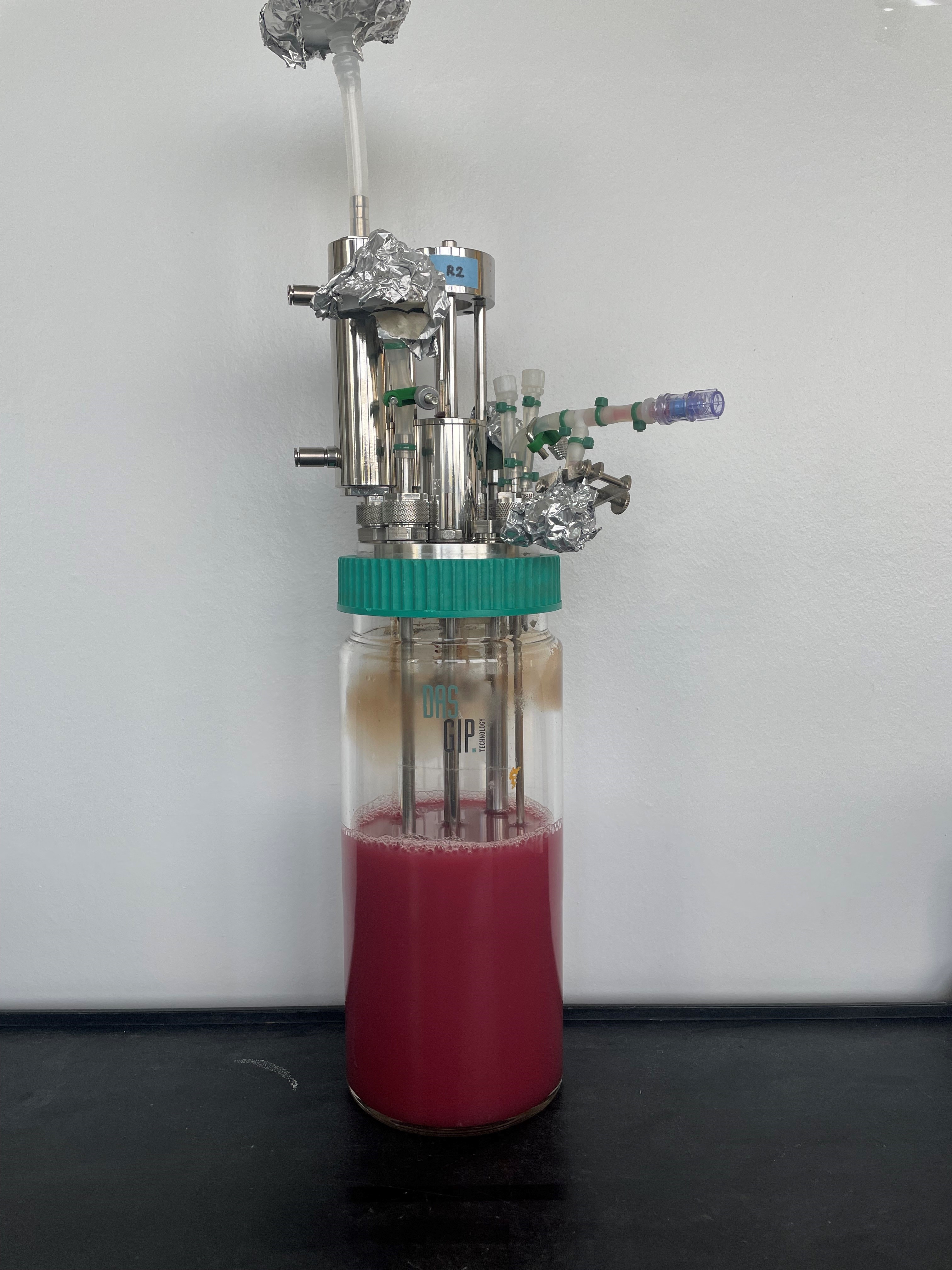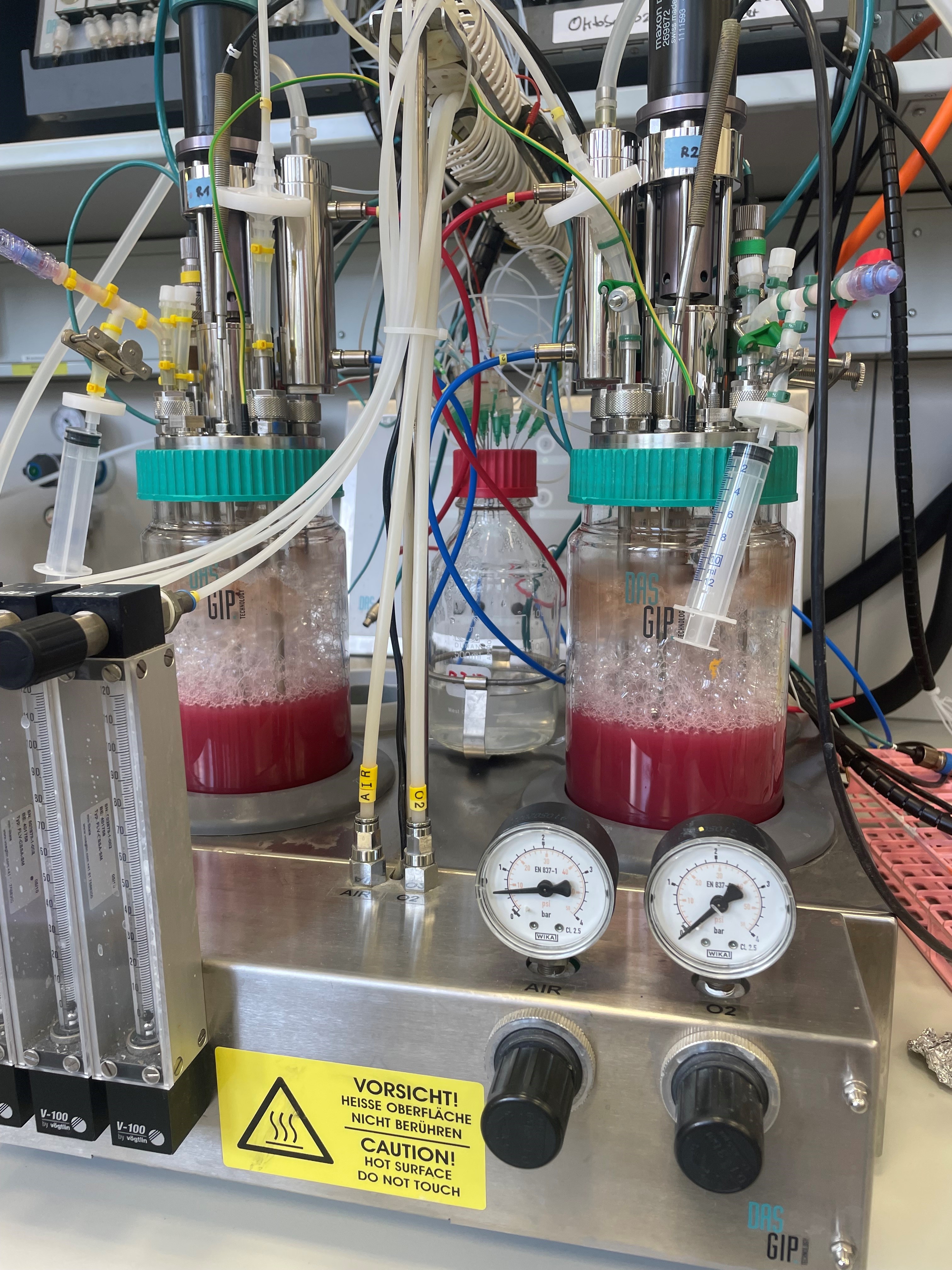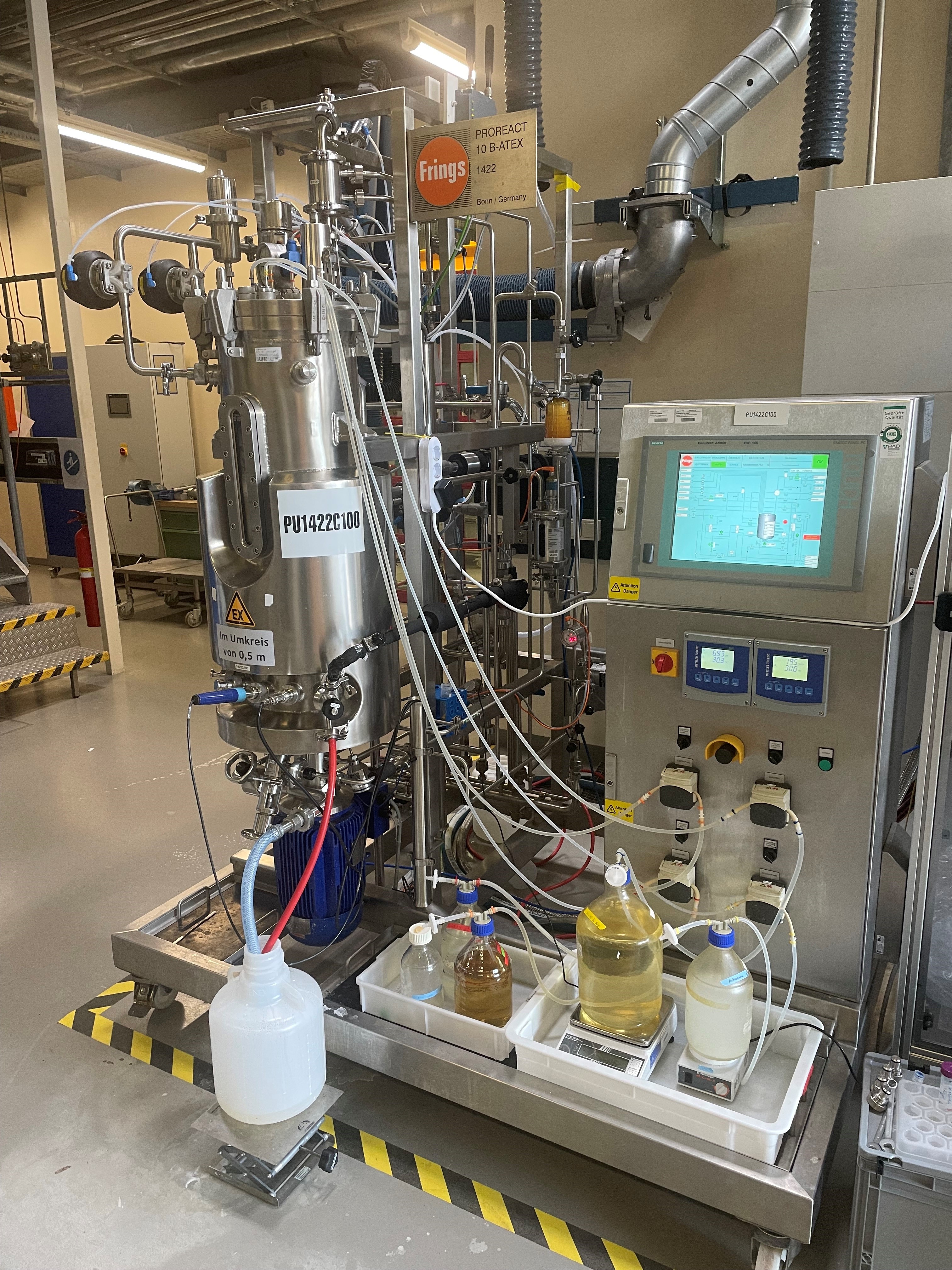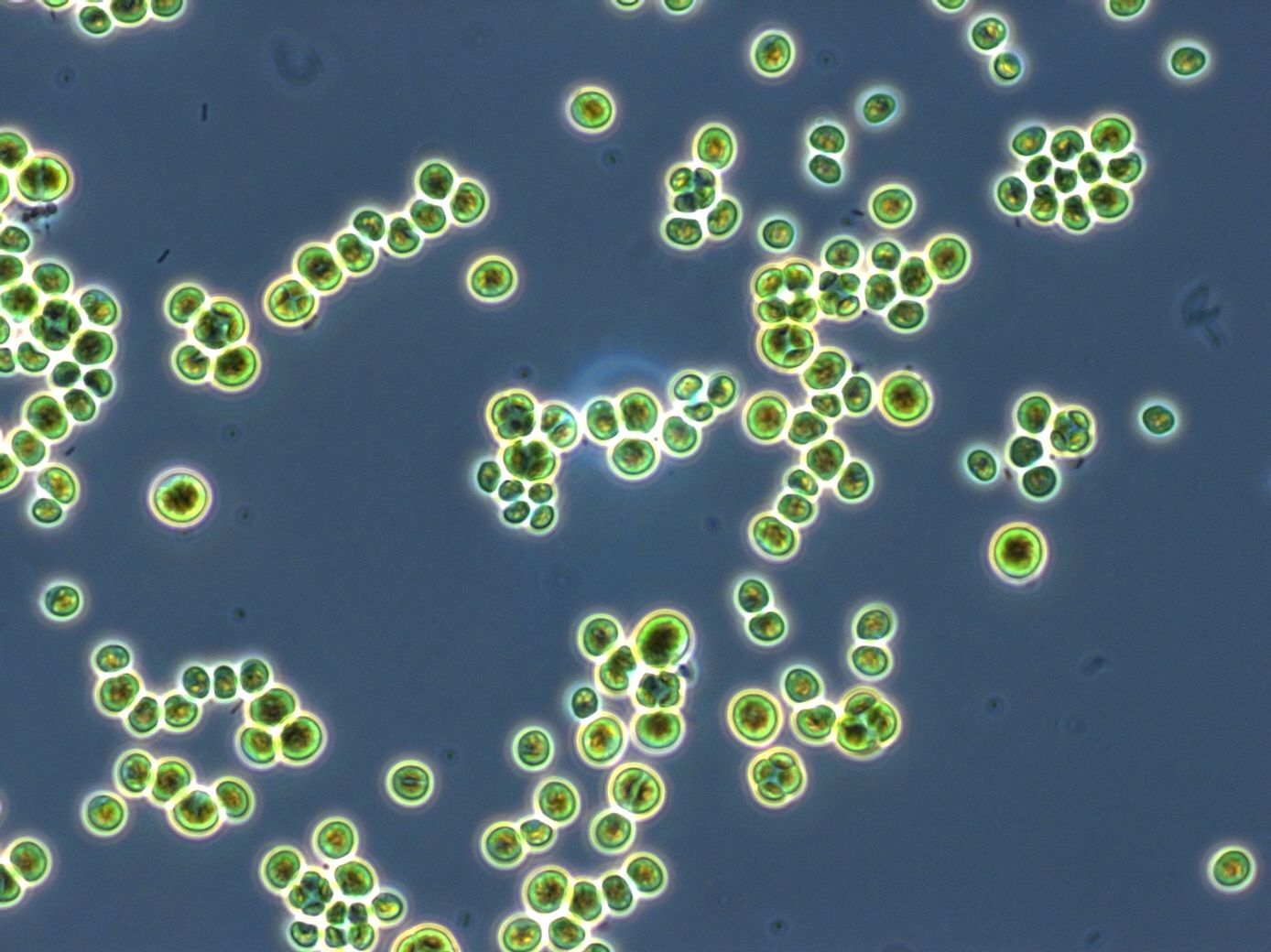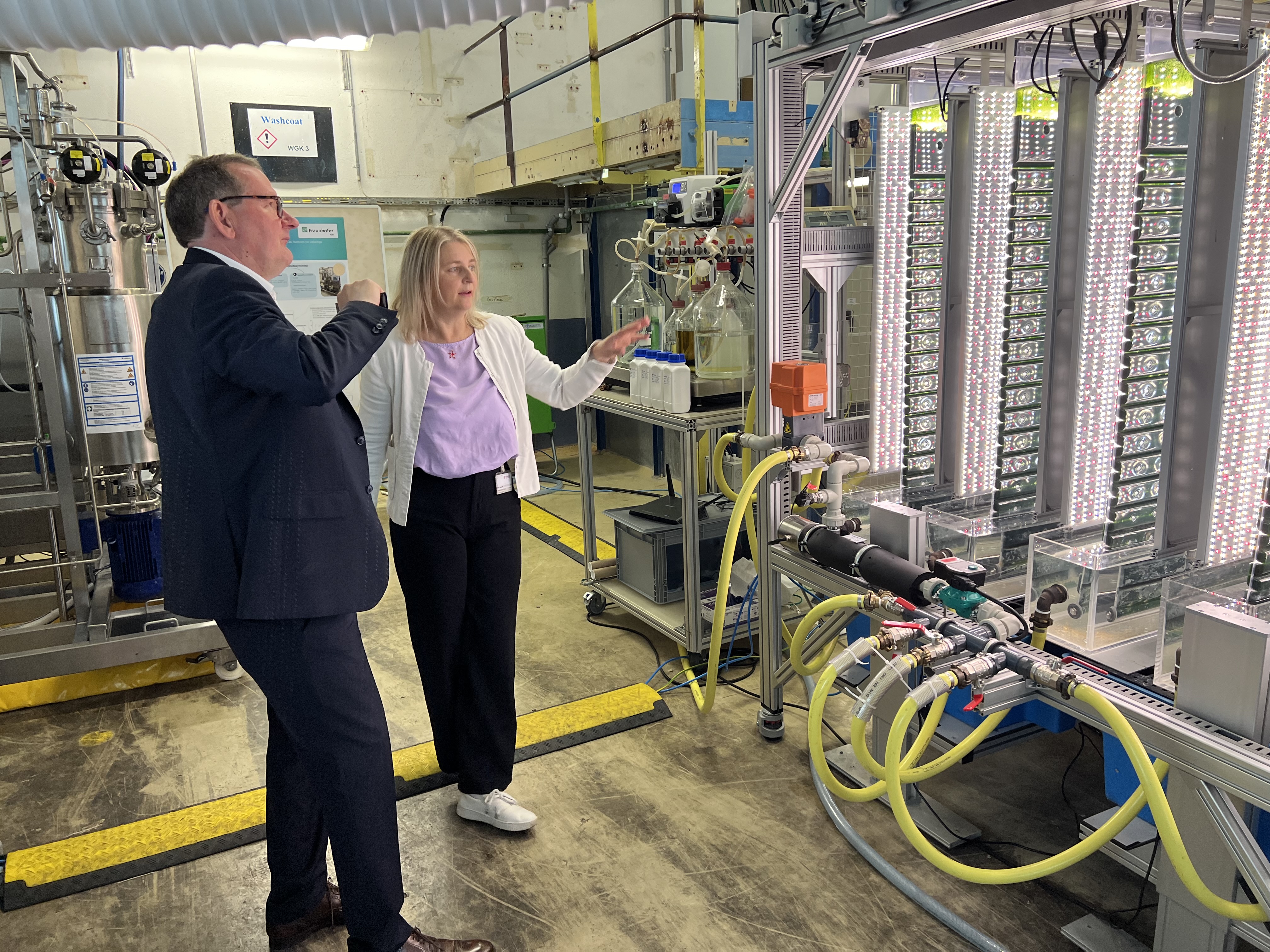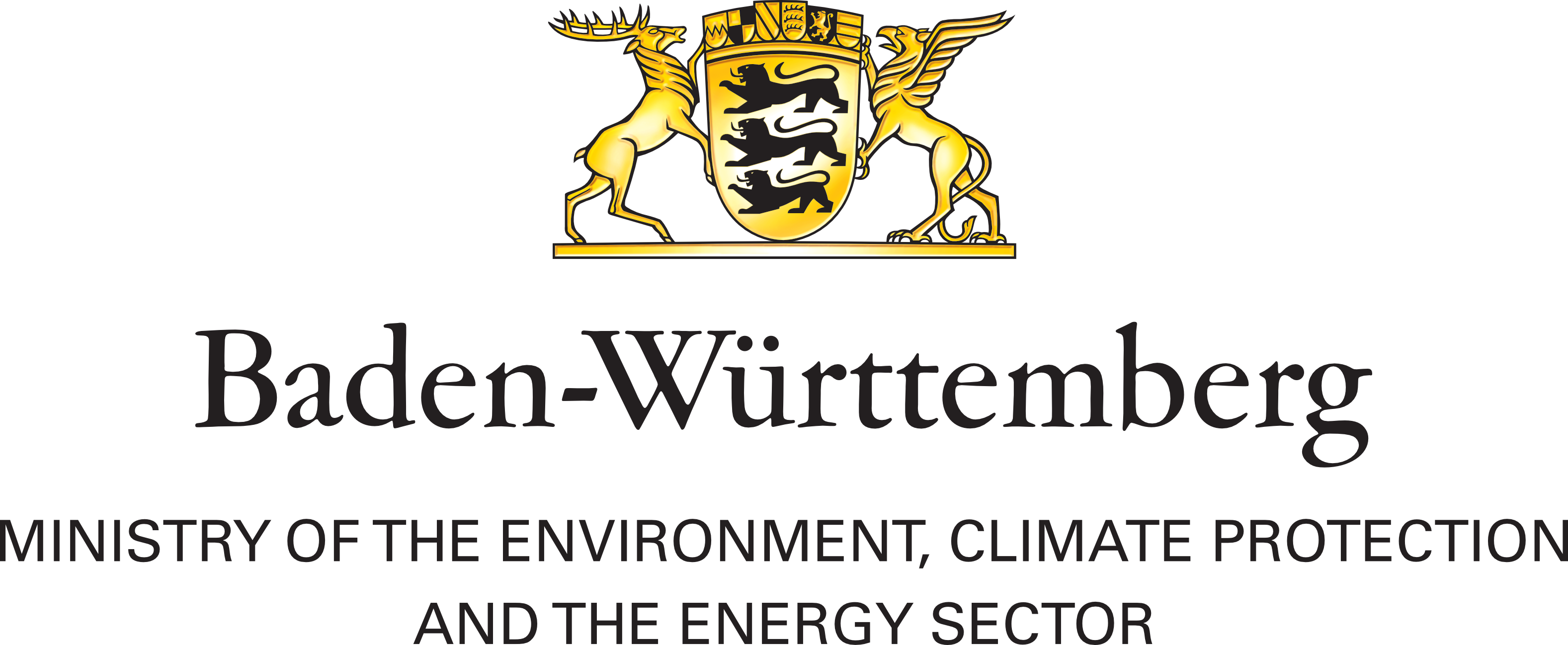Bacterial hydrogen production: from laboratory to demonstration scale
With the help of the first process step, hydrogen production using bacteria, a previously unutilized ethanol-containing material stream could be tapped. To accomplish this, a fermentation was carried out in a 75-liter bioreactor in which the purple bacterium Rhodospirillum rubrum metabolized ethanol – with the help of sugars such as fructose – and produced hydrogen under so-called microaerobic conditions. Microaerobic conditions mean that by controlling the aeration and stirring within a bioreactor, the production of oxygen is limited so that the bacteria “work” exactly at the threshold between respiration and anaerobic fermentation.
To achieve the project goals, the first step in the actual implementation was to analyze the material stream generated at Evonik and evaluate it using growth trials and toxicity tests. This was to clarify in which concentrations the substrate could be used, as ethanol at high concentrations has a growth-inhibiting effect even for these bacteria. An optimal compromise between the maximum consumption of ethanol and still high growth rates turned out to be a substrate combination of ethanol and fructose, each at 15 g/L. Subsequently, the composition of the nutrient solution was optimized to further increase growth.
Building on this basis, the bacterial cultivation could then be transferred from the flask to a small laboratory-scale bioreactor. The laboratory reactor offered the advantage that growth and hydrogen production could be controlled by regulating various cultivation parameters, thus already showing parallels to scaling up to the demonstration scale.
In the bioreactor, the project team divided the process into two phases. Initially, the bioreactor was aerated with air, i.e., operated aerobically, because respiration in bacteria is more efficient in this case, achieving higher growth rates and cell densities. This, in turn, resulted in a more efficient process with higher hydrogen production rates. Subsequently, the air supply was limited, creating conditions under which the bacteria could produce hydrogen through microaerobic dark fermentation.
Since more bacteria also produce a larger amount of hydrogen, a feeding process was developed. During fermentation, new nutrients are gradually supplied to maintain a constant growth of the bacteria. It is important for the feeding solution that carbon sources like ethanol and fructose, nitrogen sources, trace elements, and vitamins are in the right ratio to prevent nutrient deficiencies, which could inhibit further growth. After comparing various concepts, the IGB researchers established a pO2-dependent feeding profile. This involves measuring the partial pressure of oxygen (pO2) in the fermentation medium. When the cells respire, oxygen is consumed and the partial pressure decreases. When ethanol and fructose are completely consumed, metabolism slows down, and less oxygen is consumed by the bacteria – recognizable by an increase in partial pressure, the so-called “hunger peak. ” Based on this hunger signal, researchers can recognize that substrate is lacking and can supply fresh nutrient solution so that the bacteria continue to grow. In the laboratory scale, a cell density of up to 34 g/L of bacterial dry mass was achieved.
In the microaerobic phase, the so-called microaerobic dark fermentation takes place, producing hydrogen. In respiration, oxygen is transferred as a so-called terminal electron acceptor. This allows the bacterium to regenerate central molecules for the respiratory chain and maintain respiration. However, if this oxygen is limited at that point, respiration is at risk of stopping. As a survival mechanism, purple bacteria then produce hydrogen. In this case, electrons can be transferred to protons and excreted as gas from the bacteria. To implement this functional principle in the bioreactor, the project first established reliable hydrogen analytics. Subsequently, it was assessed how different oxygen concentrations in the fermentation medium affect hydrogen yield. The hydrogen yield was maximized by adding additional nitrogen to the aeration air.

 Fraunhofer Institute for Interfacial Engineering and Biotechnology IGB
Fraunhofer Institute for Interfacial Engineering and Biotechnology IGB